
You may not know it but Shahid Kamal Ahmad was one of the key players for Sony’s PlayStation 4. Having joined in 2005, Ahmad rose to prominence in the midst of the PS4’s launch thanks to his involvement with indie developers and getting as many studios on-board as possible with their games. Ahmad left Sony at the end of 2015 to pursue other ventures like game development and recently joined the board of advisers for Double 11 (which has been involved with games like Prison Architect and the Pixeljunk games).
GamingBolt had a chance to speak to Ahmad about his work with Sony, what keeps him busy these days and what we can expect in the future. If you’re interested to know more about him, check out his podcast or reach out on Twitter.

"Strategic Content was the role I was made to do. My entire career from 1982 to that point had been my preparation. I got to build a world class team of high performers."
Looking back on your time at Sony, you helped provide exposure to a ton of different indie developers and their games. What was it like and how did this unique role evolve for you over the years?
Shahid Kamal Ahmad: My last few years at PlayStation were the most rewarding of my career. I finally got a chance to give back to the development community that I so love. When I joined in 2005, my role was traditional, but I always had a bit of a maverick streak. As a Developer Account Manager, my job was to evangelize PSP and the new PS3 to developers, who at the time were rarely completely independent in the console market, as the finance they required to create console games that the market demanded could only be met by publishers. So actually, there was little we could do to help them and it was mostly a relationship management exercise.
Over the years I got behind or helped start various initiatives that supported developer independence. I started a kit loan program early on when development hardware was very expensive, then I got behind the PSP Minis project where I got to deal with smaller developers and then I initiated the Emerging Markets project where we successfully nurtured a PS2 local development and publishing program in India and started working with some developers in some of the Arab countries as well as in Spain. These were entrepreneurial activities that suited my working style very well. Finally, I started Strategic Content in late 2011, which moved me out of Third Party Relations and into Business Development. This is when my adventure with the independent development community really kicked off; first with PlayStation Mobile, then with Vita and culminating in the enormous success of the PS4 and the early stage commissioning of many projects for PSVR before I left to pursue a life in development myself.
Strategic Content was the role I was made to do. My entire career from 1982 to that point had been my preparation. I got to build a world class team of high performers. It was a total blast. It was almost unbearably exciting. We had an enormous sense of mission and we got an enormous amount of work done.
When the PlayStation 4 was primed for launch, what motivated you to try and bring as many indie titles to the console as possible? What kind of obstacles did you encounter and what are your thoughts on consoles now being a parallel sort of indie audience?
Shahid Kamal Ahmad: That’s a great question. During the run up to launch, my team was working with a lot of independent developers creating games for PS Vita. We saw no reason not to help them get onto the soon-to-be-launching PS4 either, but we weren’t making too much noise about it, as in early 2013 this wasn’t a strategic priority for my team. Then one day in the summer of 2013 I got randomly pulled into a conference call with Mark Cerny and a few other people. It was clear that there wasn’t a plan for Gamescom to announce much in the way of content. I went back to the team and we pulled together a list of all the games we were commissioning and it turned out that we had 14 in the pipe and we just hadn’t known.
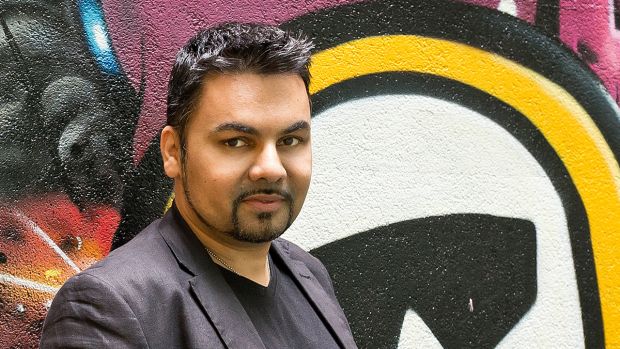
"PlayStation is a very special place to work and a very special company with a strong heritage."
So when I went to the next conference call, I had a list and we looked in much better shape. Next thing I know I’m on the stage at Gamescom announcing a bunch of games for PS4 from indies, Jim is announcing some of our games and the show floor meanwhile is full of our Vita games. Then it just took off and suddenly the whole picture was making a lot of sense.
Initially, it wasn’t really my team’s job to get games for PS4. A combination of events led to this happening, like getting on that conference call; like us making the decision to commission PS4 games by the same developers who were making PS Vita games, just in case; like Nainan Shah, Murray Hume, Setsuo Suzuki, Tony Clark, Adam Boyes and Mark Cerny supporting the work my team was doing; like the “session musician” developers such as Abstraction, Blit and Double 11 delivering such outstanding work; like Rami Ismail of Vlambeer and Mike Bithell agreeing to give us timed exclusives, there were so many things, and if they hadn’t all happened, we wouldn’t have had dozens and dozens of great games on the PS4.
There were plenty of other factors too, but a huge amount of credit has to go to Lorenzo, Spencer and Ben from Strategic Content who worked tirelessly, morning to late night, with passion and commitment and drive and enthusiasm to help keep everything on track. I think what independent developers bring to console is what I’ve always said: They’re the lifeblood of creativity. If you choke that off, if you act like some hubristic gatekeeper, then you end up with sterility. There’s room for everyone.
When compared to other gaming companies, say Microsoft or Nintendo, what is so different about Sony? Is their work ethics or is it their commitment towards entertaining people?
Shahid Kamal Ahmad: Having never worked at Nintendo or Microsoft, which I’m sure are fine companies with good people, I couldn’t really say too much, but PlayStation is a very special place to work and a very special company with a strong heritage.
I know you were not a part of the 1st party team at Sony but as someone who worked with Sony for quite a while, what does their commitment towards new IP creation and 1st party game development looks like for the PS4?
Shahid Kamal Ahmad: I can’t offer any comment on this as I was never part of Worldwide Studios.
We’ve seen the positive influence of PlayStation Plus’s Instant Game Collection and how it benefited games like Rocket League. Were there any other successes that you were proud of? Did you believe the Instant Game Collection was a surefire technique for making an indie IP successful or just a jumping board to get the name out there?
Shahid Kamal Ahmad: A lot of credit for this has to go to Murray Hume, Nainan Shah and Ross McGregor. They were the strategists, my team delivered for the Plus service. There were so many of Strategic Content’s games, particularly early on that appeared on Plus, simply because we were ready and prepared and the larger teams needed more time. One title we’re particularly proud of is Velocity 2X. It’s not just a great game for Plus, it’s one of the best video games ever made, period.
"60fps has always been my personal preference and I’m sure many gamers would prefer a game that runs at 60fps than at 30fps or even slower, so I stand by my preference for sure!"
The way we thought of it was that here is a service that can get a game from a developer with a hitherto niche audience potentially into the hands of millions. It was like the video game equivalent of singles in that it might actually be a loss leader, but it would promote that developer and the service and prove to be a long-term benefit to everyone.
What else can you tell us about the Strategic Content division and how it’s working to bring games to the PS4 in your absence?
Shahid Kamal Ahmad: My last responsibility before I left was to sign a raft of titles for PlayStation VR. Many of those titles have yet to be announced. There are still a lot of titles for Vita, PS4 and PSVR in the pipeline. Lorenzo is a great guy. He has drive, he is organized, strategic, a total gamer and super smart. There are a lot of exciting things coming from that team, which is in excellent hands with Lorenzo.
You once famously tweeted: Give me 60fps or give me death. Except a few indie titles, not many AAA games run at that standard on the PS4. Looking back how do you feel about that statement?
Shahid Kamal Ahmad: Ha! You never know what people will latch onto. My Twitter account is my personal account. I’ve expressed opinions there that aren’t company policy. It’s not actually the first time I’ve tweeted that funnily enough. 60fps has always been my personal preference and I’m sure many gamers would prefer a game that runs at 60fps than at 30fps or even slower, so I stand by my preference for sure! I remember tweeting something else, more work related about how you’d be hearing about 1080p and 60fps a lot more often this generation, and that has certainly proven to be the case. As devs become more familiar with the PS4 hardware I’m sure you’ll see even more.
You recently joined Double 11. How did this came to fruition?
Shahid Kamal Ahmad: I commissioned five games through Double 11 in my time at PlayStation. They are one of the finest technical developers on the planet. They’re also led by a management team that I got on with extremely well. So when they asked me to act as an adviser, I had little hesitation in accepting. I’m confident they’re destined for greater and greater success.
What can you tell us about the new game that you’re creating? At least with regards to the genre.
Shahid Kamal Ahmad: It’s a word game. I need to make something small to begin with. Small, but fun. At Strategic Content, I had a rule, which we violated on very few occasions: See a prototype first, and if that’s delivering the fun, even micro-cosmically, then you have a chance. So I am trying to make the smallest thing that is fun. It’s actually very, very hard to do. You have nowhere to hide. You can’t use tech, graphics, music, story, levels; you’re naked. Just the gameplay. If I can do that, then I can progress to the next challenge. And then the next one. My ambition is colossal. I eventually want to be making games that shock with their innovation and scope, but I am returning to development after decades, and I can’t pretend I can jump to the top of Everest with a single bound. One step at a time. Let’s get to Base Camp first.
"The price point of PSVR puts PlayStation in a strong position. They have a large, active installed base for their headset already, and probably the most consumer-friendly device of the serious contenders."
Did you feel inspired by the indie devs you worked with to do something of your own?
Shahid Kamal Ahmad: Totally. If it wasn’t for the excitement and vibe and creativity of indie developers, I wouldn’t be doing what I’m doing now. I’m not getting any younger either. Last year I turned 50. Some people think I’m crazy, but most think I’m brave. I think I’m somewhere in the middle and now it’s up to me to prove that I can still do it, so that I can count myself among the best independent developers, but I’m not fooling myself. I have a lot to learn in a short space of time, but I’m confident I’ll get there.
Will this new game be coming to multiple platforms or will you possibly look at exclusivity for the PlayStation family?
Shahid Kamal Ahmad: This first one is probably going to be experimental. I think it will probably be my third game that is suited to PlayStation and at that time, I will definitely consider exclusivity, because getting a platform on board is incredibly advantageous. I should stress that I’m independent, much as I love PlayStation, I have no formal ties with them, but that fondness coupled with the passion I have for the PlayStation values and brand mean that when I make a really ambitious game, they will likely be the first people I will want to talk to.
What are your thoughts on the future of gaming with regards to virtual reality? Besides the fact that Sony is pushing for PlayStation VR, do you believe the medium as a whole has any shelf life outside of being a novelty?
Shahid Kamal Ahmad: I’m a totally wide-eyed, raving lunatic for VR. I think the potential is enormous. I just came back from GDC. I went there for just one day to be close to the PSVR launch event and to interview Yoshida-san for my Remaster podcast. There will definitely be a novelty factor to begin with, but as people start to understand the form, you will see some truly astonishing experiences. I want to make some of them!
What are your thoughts on the price of PSVR and how much of an impact it will make once it launches? Do you think it will be able to sustain its success unlike the PS Move or 3D TVS?
Shahid Kamal Ahmad: The price point of PSVR puts PlayStation in a strong position. They have a large, active installed base for their headset already, and probably the most consumer-friendly device of the serious contenders. I think VR in general is here to stay, and it’s only going to keep getting better with every generation. TV will likely not go away, but VR is well poised to become the new medium; just don’t expect this to happen overnight!
"I have a golden rule for VR: Don’t break the spell. Once someone is in VR, you want them to forget they’re there. That’s a combination of technique, technology, pacing and design."
As someone who has been part of the games industry what are your thoughts on the importance of backwards compatibility? Do you think it should be offered for free or should publishers charge for it?
Shahid Kamal Ahmad: I’ve been making games, or helping people to make games since 1982. I’ve seen a lot of things come and go. I’m not a great believer in backwards compatibility. I think that each device should have its own repertoire, its own “vibe”. As for whether publishers should charge for it or not, well that’s really a matter for them. If you look at film and music, those are different categories entirely. Obviously if I’ve paid for a tons of CDs and vinyl, then I don’t like to pay again for the digital streamed version, which is why I think iTunes Match is such a neat idea. Amazon have done a great job of allowing your previous CD purchases via Amazon to become instantly available in your cloud collection.
That’s smart, but I bet they had to pay the publishers for that. It’s a great consumer benefit. With film too, if I’ve bought a Blu-ray, I don’t want to pay again for a streamed version, but you know what? I do. I’d bought the Bond collection on DVD, but when it became available on Apple TV, I bought it again, no hesitation. If I want to enjoy the originals, I still can. I can dig out my old consoles, or my CD player, or my DVD player, but do I really want to? It becomes more and more of a niche. An important niche, no doubt, but we are enjoying the benefits of technology and that means we often need to move with the times.
What do you believe will be the key factor in the success of VR, both in the short and long term?
Shahid Kamal Ahmad: I have a golden rule for VR: Don’t break the spell. Once someone is in VR, you want them to forget they’re there. That’s a combination of technique, technology, pacing and design. It’s a brand new challenge. Ergonomics will also be important, as will ease of setup. Input is also not quite there yet, but it’s moving in the right direction.
We’re also interested in your thoughts on mobile gaming. Though the platform has seen a strong boom period several years ago, it seems to be in pretty much the same place as last year. What do you think is the next big step for mobile games in 2016 and beyond?
Shahid Kamal Ahmad: More intelligent curation is vital. Without it, you’ll get continue to see creative stagnation. The games are there, it’s just very hard to find them.








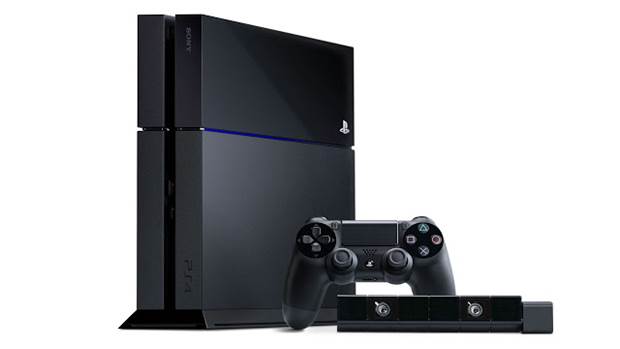
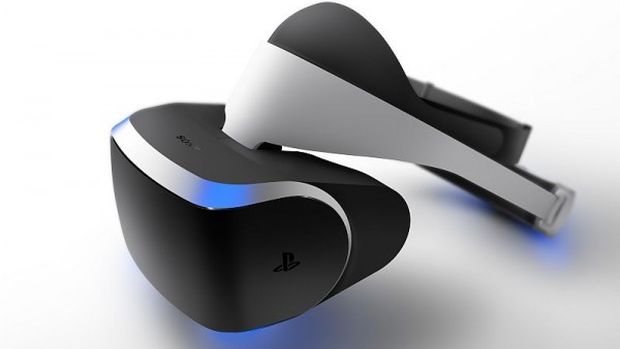
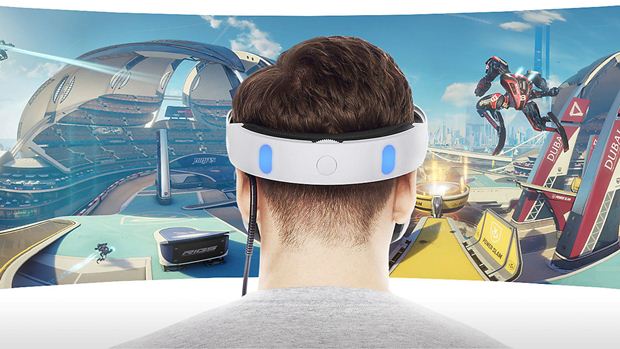

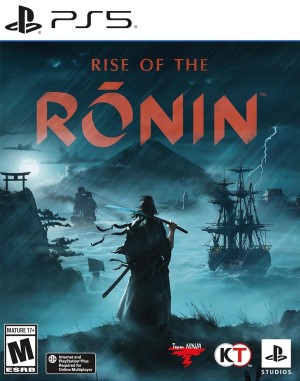

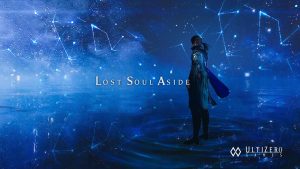

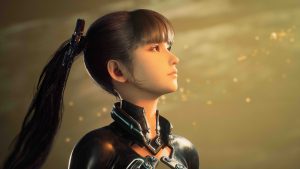


Share Your Thoughts Below (Always follow our comments policy!)